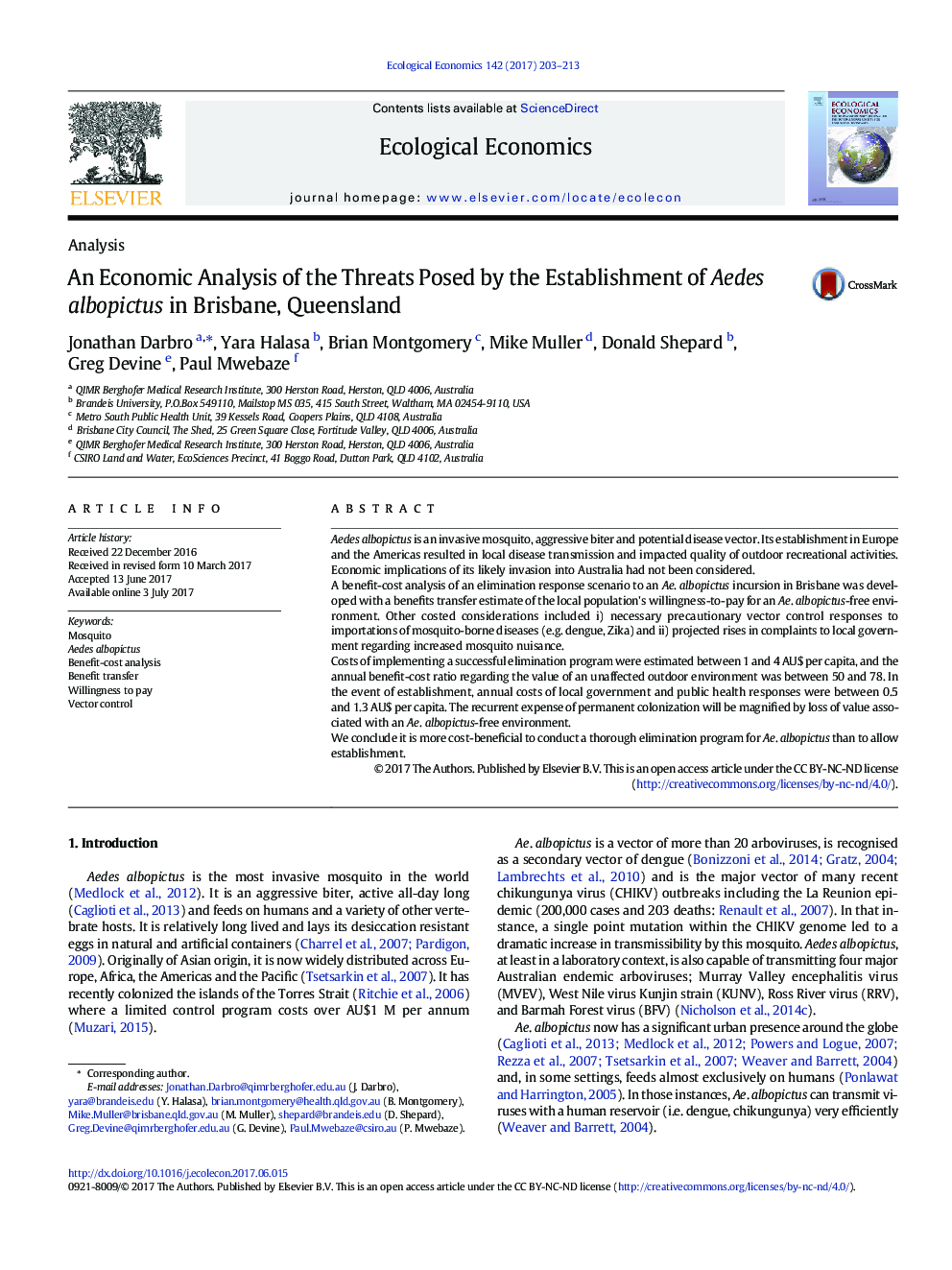| Article ID | Journal | Published Year | Pages | File Type |
|---|---|---|---|---|
| 5048546 | Ecological Economics | 2017 | 11 Pages |
â¢Benefit-cost analysis of elimination of Aedes albopictus mosquito in Brisbaneâ¢Value of outdoor time lost due to Ae. albopictus estimated via benefit transferâ¢Elimination plan for hypothetical incursion of Ae. albopictus costedâ¢Benefit/cost ratio of thorough elimination found to be highly favourableâ¢Nuisance control and public health response due to established Ae. albopictus costed
Aedes albopictus is an invasive mosquito, aggressive biter and potential disease vector. Its establishment in Europe and the Americas resulted in local disease transmission and impacted quality of outdoor recreational activities. Economic implications of its likely invasion into Australia had not been considered.A benefit-cost analysis of an elimination response scenario to an Ae. albopictus incursion in Brisbane was developed with a benefits transfer estimate of the local population's willingness-to-pay for an Ae. albopictus-free environment. Other costed considerations included i) necessary precautionary vector control responses to importations of mosquito-borne diseases (e.g. dengue, Zika) and ii) projected rises in complaints to local government regarding increased mosquito nuisance.Costs of implementing a successful elimination program were estimated between 1 and 4Â AU$ per capita, and the annual benefit-cost ratio regarding the value of an unaffected outdoor environment was between 50 and 78. In the event of establishment, annual costs of local government and public health responses were between 0.5 and 1.3Â AU$ per capita. The recurrent expense of permanent colonization will be magnified by loss of value associated with an Ae. albopictus-free environment.We conclude it is more cost-beneficial to conduct a thorough elimination program for Ae. albopictus than to allow establishment.
